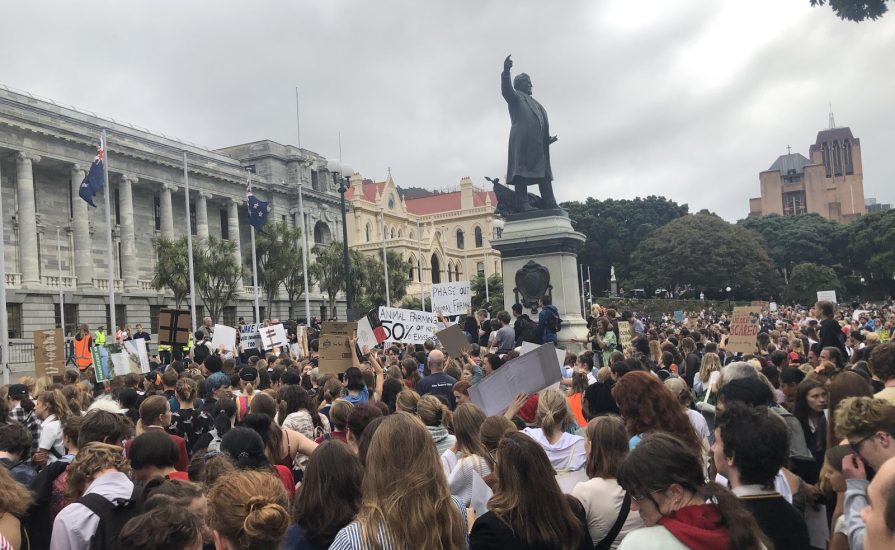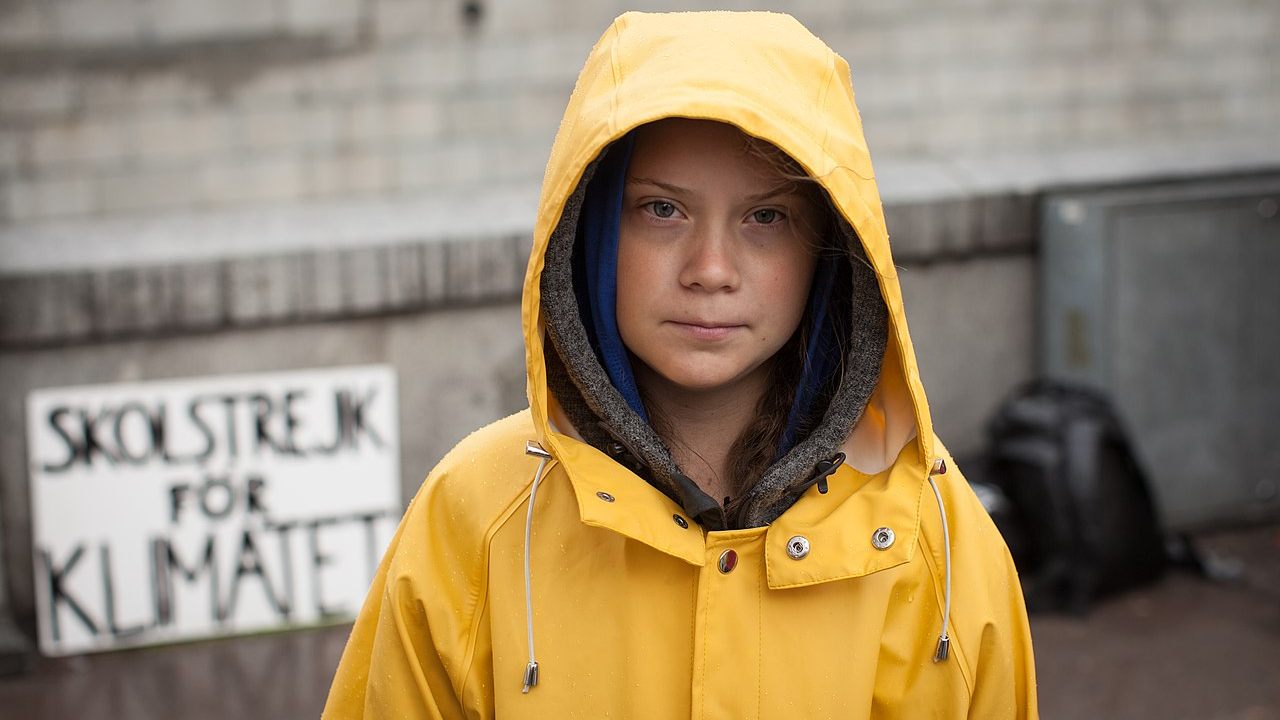By Yi Xin Heng
When asked to identify the biggest existential threat to the United States, four candidates in the first night of the US Democratic Debate firmly uttered “climate change”.[1] Such recognition is no surprise at a time when local councils have been declaring climate emergencies, Europe is hit by searing temperatures and the world is grieving for the first glacier lost to global warming.[2] Perhaps this sense of urgency has been bolstered by the hard-line rhetoric employed by climate change denialists in office – such as Donald Trump and Jair Bolsonaro.
In New Zealand, the Government has consistently identified climate change as a policy priority. However, to avoid being lulled into complacency, the public should continue to actively evaluate the environmental policies (or the lack thereof) being introduced by the Government. Here are three environmental policies that you might consider bringing up during your next water cooler conversation.
Penny for your bottle?
After intensive lobbying by Action Station and The Kiwi Bottle Drive, the Ministry for the Environment under Labour Minister David Parker agreed in December 2018 to examine policy options for introducing a bottle bill in New Zealand.[3] Also known as a container deposit scheme, this legislation will legally require all beverage containers being sold to carry a financial deposit. The customer can redeem the deposit by returning the bottle or container, which will then be recycled.
A report commissioned by Auckland Council estimated that this policy would increase recycling rates from a dismal 45% to 82%. The current kerbside recycling system merely relies on an individual’s environmental consciousness and proactiveness, whereas this new policy would introduce a significant financial incentive to recycle.[4] In Germany, for instance, reverse vending machines are placed in supermarkets. A printed receipt specifies the amount of credits attained from the recycled items, which can be redeemed when one pays for their groceries. Bottles left in public areas as waste are likely to be picked up by and generate a stream of income for collectors. A cost-benefit analysis conducted in the same report also estimated that the tangible (i.e. value of recycled materials, reduction in kerbside recycling costs) and intangible gains (i.e. positive environmental impact) outweigh costs of the scheme by three to one.
However, scepticism has also been voiced. An article published by The Economist lamented that revenues have shrunk for companies who administer kerbside recycling programmes, as less valuable recyclable items were being collected.[5] The bottle bill in New York purportedly resulted in more inefficiencies, as beverage manufacturers had to establish their own recycling systems.
Moreover, a few perverse incentives were introduced by the bottle bill legislation. In Germany, both recyclable and non-recyclable are collected, with a higher deposit placed on the latter. The deposit is a cost incurred by the customer at the point of sale, with the intention of deterring customer purchases of less environmentally friendly bottles. However, companies have been incentivised to switch from recyclable to non-recyclable bottles to avoid involvement in the recycling process.[6] Companies have even made a profit from this system, as 1% – 3% of customers do not claim their deposit. Experts have thus given the bottle bill legislation a mixed review, and cautioned that the policy could even be a barrier in the move towards eco-friendly bottles.
The abovementioned weaknesses appear to be the outcome of poor policy design, instead of fundamental flaw of the bottle bill legislation. In the model proposed by the Kiwi Bottle Drive campaign, all recyclable bottles are collected and processed through a centralised system.[7] The deposit is first paid for by the beverage companies and held by a non-profit organisation, which acts as the “Managing Agency”. Companies will not profit from any unclaimed deposits, as they are used to offset the operating costs of the scheme. Lastly, activists are proposing to simultaneously introduce legislation that would require all beverage distributors to only utilise recyclable bottles or containers.
https://www.stuff.co.nz/environment/109065243/cashfortrash-bottle-refund-scheme-petition-presented-at--parliament?rm=a
The hype around hydrogen
There is talk that hydrogen could be the next liquid gold. The Government has strengthened its commitment to transitioning to a low emissions economy and cited hydrogen as a key source of clean energy. Flagship projects in Taranaki and Rotorua that use renewable energy to produce hydrogen fuel have been the poster boys for the government’s vision of a zero-carbon future.[8],[9] In addition, exporting hydrogen is likely to be an economic opportunity for New Zealand. A report by the Australian Government identified Japan and South Korea as countries which will have a strong demand for clean energy, resulting in an export industry that is worth $1.7 billion.[10] The Government would have to act quickly should it want to establish New Zealand as the hydrogen supplier of choice to East Asian countries, as the Australian Government already has ambitions to fuel the Tokyo 2020 Olympic Games with its hydrogen exports.[11]
There are however a few caveats when entering the hydrogen race. Experts have observed that the cost of adopting hydrogen technology remain high as it still remains in its infancy relative to electric vehicle (EV) technology.[12] It might be a hasty decision to start rolling out hydrogen refuelling stations as we ramp up our effort to install EV charging stations, as one technology (EV or hydrogen) is likely to outcompete the other in the near future.
The Government appears to be aware of the need to be cautious by only committing to a few pilot projects largely concentrated in the Taranaki region (which has been most affected by the policy decision to stop giving permits for offshore oil exploration). A draft hydrogen green paper is likely to be released soon and we should provide our feedback.[13]
https://www.stuff.co.nz/business/101292443/joint-iwi-and-japan-hydrogen-pilot-project-for-taup
Nurturing the next Greta Thunberg
There have been calls across the globe for climate change to be an essential component of the curriculum. A Stuff NZ article published two months ago revealed that students receive varying degree of exposure to the topic of climate change.[14] While frameworks have been released by the Ministry of Education, education around climate change is encouraged but not compulsory and discretion is largely left to teachers.
In the UK, the Labour Party campaigned on the promise to make climate change an essential part of the curriculum. It detailed plans to incorporate content about the “ecological and social impact of climate change” as well as equip students with skills that would be relevant in the renewable energy and green technology sector.[15] Some schools in the US have also decided there is a moral obligation to help students understand the defining issue of their lifetime. A school in Portland allocated $200,000 towards introducing modules on climate change into Social Studies and Science subjects, as well as establishing a course that is distinctly focused on climate justice. [16]
In New Zealand, change appears to be afoot. The Ministry of Education released a toolkit titled “Putatara” this month, which provides educators with resources to teach topics such as sustainability and global citizenship.[17] Students brainstorm about steps that can be taken to address climate change at local, national and international levels, and suggest lessons that the environmental movement can learn from the suffrage campaigns. This is a good start, but we should continue to press for climate change to be recognised as a topic as essential to one’s ability to thrive in the future economy as coding and technology literacy.
https://www.firstpost.com/tech/science/teen-activist-greta-thunberg-says-meeting-us-president-trump-would-be-a-waste-7169341.html
Conclusion
A bottle bill reduces waste and incentivises consumers to recycle. Investing in hydrogen technology reduces carbon emissions and generates export revenue for New Zealand. Making climate change an integral part of the curriculum will create a generation of climate literate voters. These three environmental policies mark the arrival of a new age in which we have become protective of our planet. There still needs to be more kōrero to set us firmly on course for a zero carbon future, but these three policies are a firm step on the road to sustainability.
[1] https://www.vox.com/future-perfect/2019/6/27/18760741/democratic-presidential-debate-2020-biggest-threat
[2] https://www.newshub.co.nz/home/politics/2019/07/climate-emergency-whangarei-district-council-latest-to-declare.html ; https://www.theguardian.com/commentisfree/2019/aug/14/glaciers-iceland-country-loss-plaque-climate-crisis?CMP=fb_gu&utm_medium=Social&utm_source=Facebook&fbclid=IwAR2R8iXoD60IEfR8WG5pQbs5jBmdxyqFNjUm6Jsi75-GNbJoZpvPpmIboqI#Echobox=1565765306
[3] https://www.stuff.co.nz/environment/109065243/cashfortrash-bottle-refund-scheme-petition-presented-at–parliament?rm=a
[4] http://www.wasteminz.org.nz/wp-content/uploads/2017/12/Container-Deposit-CBA-Report-Final.pdf
[5] https://www.economist.com/united-states/2019/03/21/new-yorks-proposed-bottle-bill-may-actually-hurt-recycling
[6] https://www.theguardian.com/world/2018/mar/30/has-germany-hit-the-jackpot-of-recycling-the-jurys-still-out
[7] https://kiwibottledrive.nz/wp-content/uploads/2019/03/CDS-Model.pdf
[8] https://www.stuff.co.nz/business/113153482/joint-venture-green-hydrogen-project-tipped-as-beginning-of-hydrogen-industry-in-taranaki
[9] https://www.stuff.co.nz/business/101292443/joint-iwi-and-japan-hydrogen-pilot-project-for-taup
[10] https://consult.industry.gov.au/national-hydrogen-strategy-taskforce/national-hydrogen-strategy-request-for-input/supporting_documents/nationalhydrogenstrategyrequestforinputdiscussionpaper.pdf
[11] https://www.reuters.com/article/us-australia-kawasaki-heavy-hydrogen/japans-kawasaki-set-to-trial-australian-hydrogen-exports-in-2020-idUSKCN1UE0QI
[12] http://www.concept.co.nz/uploads/2/5/5/4/25542442/h2_report1_summary_v4.pdf
[13] https://www.mbie.govt.nz/building-and-energy/energy-and-natural-resources/energy-strategies-for-new-zealand/#a-vision-for-hydrogen-in-new-zealand
[14] https://www.stuff.co.nz/environment/climate-news/113368196/please-miss-can-you-teach-us-about-climate-change
[15] https://www.independent.co.uk/news/education/education-news/labour-climate-change-school-protests-curriculum-strikes-a8927636.html
[16] https://www.nytimes.com/2019/06/09/us/portland-climate-change.html
[17] https://putatara.education.govt.nz/#/home
Featured Image: http://www.massey.ac.nz/~wwjourn/wellington-students-call-climate-action/
The Public Policy Club is a non-partisan club at the University of Auckland that aims to encourage, educate and involve students from all backgrounds in the education and development of political knowledge. The views and opinions expressed in this article are those of the author and do not necessarily reflect those of PPC.







